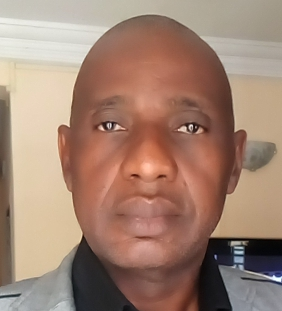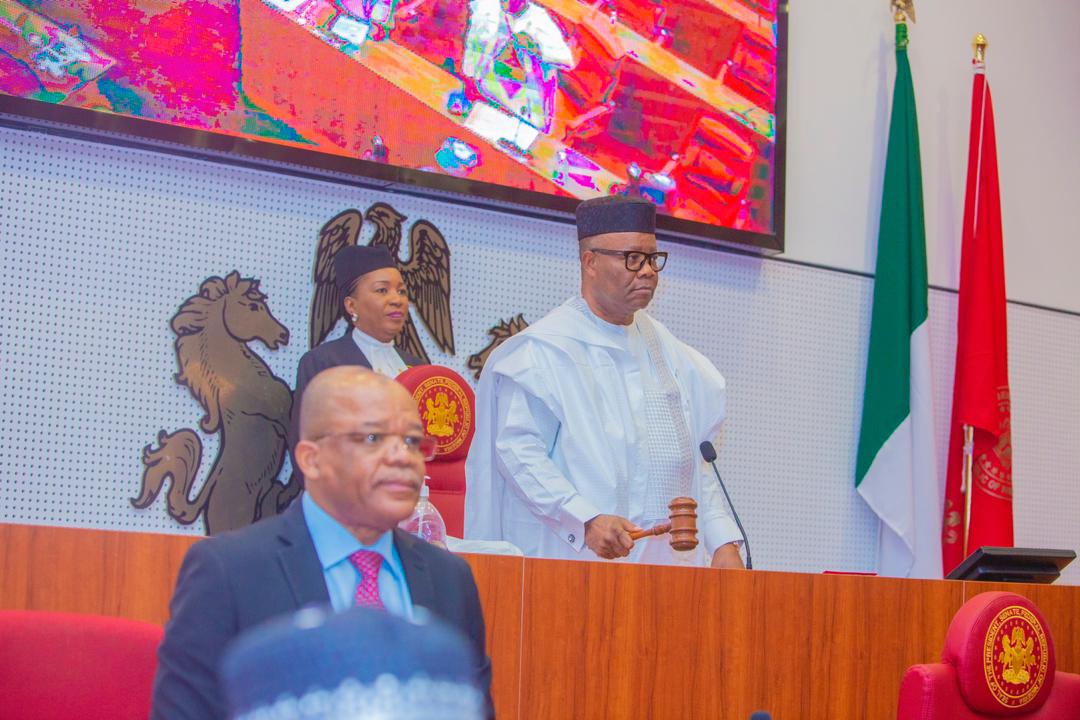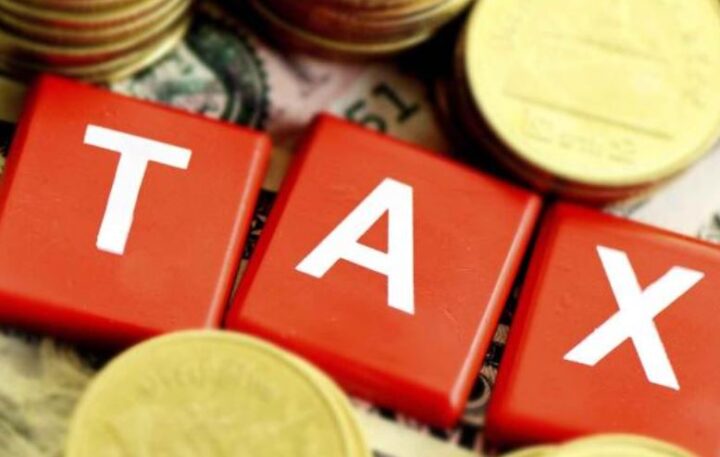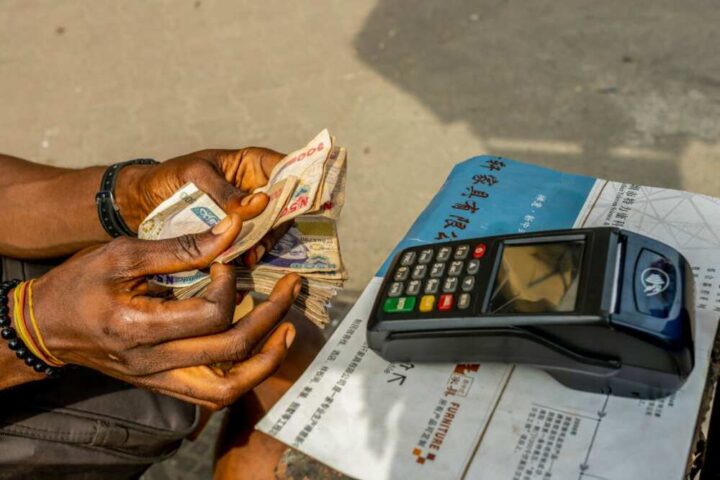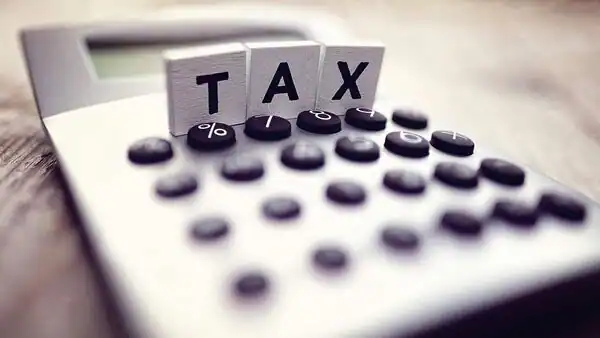BY MON-CHARLES EGBO
Two examples of what Nigeria gains when the executive begins to recognise legislative resolutions were demonstrated during the third quarter activities of the 10th senate.
Sequel to its probe of the state of affairs of the Nigerian Postal Service (NIPOST) the senate discovered that “the sum of N10 billion released by the ministry of finance for the proposed NIPOST restructuring and recapitalisation” was “injudiciously utilised”. There was also a revelation that two subsidiary firms namely the NIPOST Properties and Development Company and NIPOST Transport and Logistics Services Limited were used to perpetrate the fraud. Acting on the recommendations, the Corporate Affairs Commission (CAC) revoked the certificates of incorporation of those companies, thus dissolving them.
Again, the senate, through a motion, had lamented that despite being “a nation blessed with abundant natural ore resources”, Nigeria “currently expends about $3.3bn annually on importation of steel” simply because the country is “plagued by moribund Ajaokuta and Delta Steel that have become conduit pipes for diversion of public funds at the expense of Nigerian taxpayers”. Consequently, it launched an investigation into “the affairs of Ajaokuta Steel Company Limited and the National Iron Ore Mining Company”. Also, guided by the discovery that the fortunes of the steel company declined to a state of inoperativeness the moment the foreign firm called Tyamzhpromexport (TPE) left it in 1994, the senate, among other far-reaching recommendations, called for the federal government’s deliberate actions by way of “adopting a strategic implementation Plan on Steel Development in Nigeria, bearing in mind the importance of steel to Nigeria’s quests for industrialisation and economic self-reliance”.
Advertisement
It did not take long before the federal government announced that it had engaged the same Tyamzhpromexport, TPE, to resuscitate the Ajaokuta Steel Company Limited.
Who says that Nigeria will not witness a quantum leap in socio-economic developments in the face of a purposeful collaboration that is driven by mutual respect among the arms of a government, particularly the legislature and the executive?
But irrespective of the disposition of the executive towards legislative outputs, an objective review shows that the 10th Senate is indeed unwavering in its commitment to discharging the statutory roles of legislation, representation and oversight.
Advertisement
The red chamber commenced the 3rd quarter with the continuation of its intervention on insecurity.
Lamenting yet again that “despite the public outcry and previous Resolutions of the National Assembly as regards the criminal activities (particularly) of those terrorists parading as herdsmen, there seems to be no visible action on the part of the government”, the senate resolved to address the challenge of insecurity robustly and comprehensively.
In what seemed a replica of its first quarter’s one-off approach to the road infrastructure collapse, this senate revisited and reviewed the reports of the 8th and 9th senates on internal security followed by a strategic meeting with the presidency for extensive deliberations on the recommendations “with a view to finding solution to the spate of insecurity plaguing the nation”.
To make the efforts broad-based, it hosted an expanded stakeholders’ engagement that involved the security chiefs, the national security adviser, heads of security and intelligence community as well as the ministers of finance, defence and police affairs including the respective ministers of state.
Advertisement
On another hand, the senate invited for security briefings, the minister of the federal capital territory, the commissioner of police and other heads of security agencies on how to ensure the safety of the FCT residents.
Furthermore, the senate variously urged “the federal government to recruit more police personnel to bolster security force’s capacity to combat kidnappings and other criminal activities effectively, to provide adequate mobility resources for the police to enhance their ability to respond swiftly to security threats and conduct patrols effectively” and then for “the Nigerian Communications Commission (NCC) to urgently ensure the functionality of dedicated emergency numbers for ambulance, and fire service emergencies to enhance swift response to security and public safety incidents”.
These followed the consideration of motions bordering on the “loss of lives, including those of security personnel and wanton destruction” in Okokolo, Abuge and Ochotonya communities in Agatu LGA, and also “the brutal killings of eleven residents of Mbanyange community of Logo LGA, all of Benue state, “several cases of kidnapping all over the country where huge ransoms have been paid and most victims still get killed” such as the FCT, “killing of two traditional rulers in Ekiti State and the abduction of primary school pupils”, bomb explosion at Bodija, Ibadan in Oyo State where not less than five lives were lost and several residential houses, schools, hotels, religious/worship centres were destroyed” in addition to “the killings of several residents of Mangu, Bokkos and Barkin Ladi communities in Plateau State”. Others included the “need to urgently enhance security measures in FCT” and then “the persistent killings in Katsina South senatorial district” as well as the “continued killings by suspected terrorists parading as herdsmen and increasing insecurity in Kwande, Ukum, Logo and Katsina-Ala local government areas of Benue-North-East senatorial district”.
Then on the reported “stealing, abduction and trafficking in children in Gwagwalada, Kwali and Kuje area councils of the FCT” where 40 children were confirmed missing with three recovered so far, the senate asked the security agencies to “put modalities in place for the recovery of the missing children and to ensure that justice is not only seen to be done but must be done speedily to serve as deterrent and as well assuage the feelings of the victims”. It further called on “the Federal Capital Territory Social Development Department to ensure proper registration of motherless babies homes in the FCT”.
Advertisement
On the killing of Nigerian Army personnel in Okuama community, Delta state, the senate called for “a fair and transparent process” in dealing with those responsible, and also for the federal government to hasten the recruitment and training of more police personnel to take up policing responsibilities while the Nigerian Army play their primary role in the affairs of the country”
Meanwhile, the senate called on “the Police Service Commission and the Nigeria Police Force to Adhere to the Federal Character Principle in the Recruitment of Constables into the Nigeria Police Force” by recruiting “a minimum of 10 candidates from each of the 774 local government councils in Nigeria” rather than going about it on state basis which will “lead to disproportional and lopsided” exercise.
Advertisement
On the challenge of out-of-school children in Nigeria, the senate has activated an internal mechanism to work with the ministry of education and related agencies as well as governments at all levels and stakeholders including non-governmental organisations to “implement targeted intervention programmes that will address all the factors militating against free access to quality and basic education particularly, multidimensional poverty and insecurity”.
Again, while the senate investigated “the various issues that are hindering the benefits of the host communities and the entire Delta-North senatorial district of Delta State from receiving the full advantages of electricity supply from the Okpai Independent Power Plant”, it called for urgent reconstruction and rehabilitation as well as provision of relief materials to enable the families and businesses affected by the “devastating fire outbreak in Misau Central Market” in Bauchi State to rebuild their lives.
Advertisement
However, on a sad note, the senate, mourning the passing away of some former lawmakers, called for their immortalisation by naming senate committee rooms respectively after the late senators Bukar Abba Ibrahim, Abubakar Sodangi Danso and the Olubadan of Ibadan, Oba Dr. Mohood Lekan Balogun while the Navy School in Ikot Ntuen, Ekparakwa in Akwa-Ibom state be renamed to the Senator Bob Ittak Ekarika Naval School.
Also, on the unfortunate death of Chief Herbert Wigwe in a helicopter crash that also took the lives of his wife, son and friend in the United States of America, the Senate called on “the United States of America through its embassy and its relevant agencies in conjunction with our Ministry of Foreign Affairs and the Nigeria Safety Investigation Bureau under the Ministry of Aviation, to meet with its USA counterpart to conduct a comprehensive investigation into the immediate and remote cause(s) of this unfortunate tragedy and publicly disclose their findings”.
Advertisement
Then, of course, petitions were received from Nigerians who were variously victims of injustice in the hands of individuals and organizations. During the period, the report on a “Petition from Igwe Chukwuemeka Cyprian against the University of Abuja for alleged wrongful accusation, detention and rustication” was considered.
The senate recommended that the University should reinstate the petitioner “as a bonafide student of the University, restore his access to the University student’s portal and recommend him for mobilisation into the 2023 National Youth Service Corps (NYSC) programme in fulfilment with the assurance given to the committee by the University, having received a written apology letter from Mr. Igwe”.
Towards repositioning the economy, the senate extended the implementation years of the 2023 Appropriation and also the 2023 Supplementary Appropriation Acts from 31st March 2024 to 30th June 2024 and from 1st January 2024 to 30th June 2024 respectively. Also, it passed the 2024 statutory budget of the Federal Capital Territory Administration in addition to the 2024 budgets of the Federal Inland Service and the Customs Service.
Similarly, it passed the Bill for an Act to Establish a National Centre for the Coordination and Control of the Proliferation of Small Arms and Light Weapons in Nigeria, the National Assembly Library Trust Fund Act amendment to change the name to National Assembly Library Resource Centre, provide for additional sources of fund and to provide for the application of the funds to set up the National Assembly Museum among others, the Student Loans (Access To Higher Education) (Repeal and Re-enactment) to establish the National Educational Loan Fund as a body corporate to receive, manage and invest funds to provide loans to Nigerians for Higher Education, Vocational training and skills acquisition, the National Youth Service Corps, NYSC, Trust Fund to provide a sustainable source of funds for the NYSC skill acquisition, training and empowerment of corps members, training and retraining of the personnel of the NYSC, development of camps and NYSC formations and facilities, Harmonised Retirement Age for Staff of National Assembly Service as well as the Federal University of Education Numan, Adamawa State and the South-East Development Commission establishment bills.
It bears repeating that if only the executive could institutionalise respect for legislative outputs, the 10th senate is consistent in its resolve to work for the people.
As such and in its sustained display of empathy with the Nigerian masses over the prevailing economic hardship, the senate passed yet another resolution against the planned withdrawal of electricity subsidy and subsequent increase in electricity tariffs. Also unwilling to see a repeat of the petroleum subsidy unpleasant experience as well as in furtherance of its multi-faceted interventions in the power sector, the senate is investigating the claim of the minister of power that the government owed the generating companies (GenCos) and the gas companies N1.3trillion and $1.3 billion respectively as part of the justification for the intended action.
Yet the electricity tariffs have since been increased amid public outcry which again underscores the executive’s domination of the legislature resulting in the disregard for legislative resolutions.
This major threat to democratic governance, it is hoped, would be addressed among other issues for which the senate in this quarter inaugurated a 44-member constitution review committee in response to the relentless yearnings of well-meaning Nigerians. Also in this regard, there were five separate bills in addition to the ones from the previous quarters on the alteration of the 1999 Constitution that have been referred to this committee that has since commenced its special assignment.
In solidarity again with Nigerians, the senate held a special session on the state of the economy culminating in a joint committee that later met with the executive branch, through the national economic management team, towards rescuing the country principally from inflation and food shortage. There were of course far-reaching recommendations with inherent capacities to turn around the economic woes of Nigeria if only there would be sufficient political will and the zeal to implement them. Though the national assembly leadership had followed it up with an interface with President Bola Tinubu, the senate on its part commenced the probe of the various incidents that forced the federal government into the humongous deficits for which the country is today bleeding.
It constituted an ad-hoc committee “with the mandate to investigate the N30tn Ways and Means obligation and the various Central Bank of Nigeria, CBN, interventions made under the Ways and Means expenditure which include the Anchor Borrower Programme, budget supports to states, support to the power and manufacturing sectors, airlines, etc., with a view to uncovering what the monies were used for, the conditions of the disbursements and possible recoveries to shore up the fortunes of the CBN”.
While the Anchor Borrower Programme was for farmers, the Ways and Means was an advance to the federal government for sundry purposes such as listed above.
The president of the senate, Godswill Akpabio was very clear on what the goals and objectives were. Inaugurating the committee, he stated that “the constitution of this committee is a testament to the Senate’s unwavering commitment to transparency, accountability, and good governance. It reflects our dedication to addressing the concerns of the Nigerian people and upholding the principles of democracy.
Lest it be misconstrued, he added: “To the members of this esteemed committee, I implore you to approach your responsibilities with the utmost sense of patriotism, professionalism and integrity. Your investigation demands impartiality and fairness, always keeping the public interest and the welfare of our nation at the forefront. We must leave no stone unturned in our pursuit of the truth. Therefore, conduct thorough inquiries and dig out information that will assist the Senate in making laws for the betterment of our country. Let us set aside personal and partisan interests, focusing solely on the task at hand. By working harmoniously, we can ensure that the Ways and Means in Nigeria are managed prudently, efficiently, and in accordance with the law”.
Still on the food insecurity, the senate referred the executive to countries “where food-stamp, which is a government-issued coupon that is given to low-income and non-income persons and is redeemable for food………as a measure to cushion the resultant hardships and sufferings on the poor/less priviledged as well as low income earners”.
As such, it recommended the introduction of “the Nigerian version of the food stamps programme as an interventionist measure to cushion the effects of food insecurity/shortage in the country”. Equally, it expressed concern about the sudden increase in the costs of building materials, particularly cement whose raw materials are sourced locally.
On the need for increased awareness and improvement of kidney treatment facilities in Nigeria, the senate has commenced the “lobby for an expansion of the National Health Insurance Scheme (NHIS) to provide comprehensive coverage for chronic kidney disease patients and ensure that financial constraints do not hinder access to essential treatments and called for the implementation of “infection prevention training and supervision protocols to safeguard Chronic Kidney Disease patients, including those with HIV and Hepatitis, who rely on dialysis treatment in Nigerian facilities” and also for the Executive “to increase the number of functional dialysis centres in tertiary health facilities, ensure access to dialysis treatment, even in remote areas, and address the shortage of dialysis nurses and specialised technicians”.
Furthermore, on the “Discrimination against the Medical Graduates from Ukraine by the Medical and Dental Council of Nigeria”, the senate urged the council to allow all the graduates in 2023 from Ukraine and other countries affected by war to sit for MDCN regulatory examinations coming up in July 2024, provided that they have their certificates. It also called for the decentralisation of the examination across the geo-political zones for convenience and easy access, similar to the Nigerian Law School. Again, it urged the Nigerian universities to admit those who were yet to complete their studies but had to flee the countries due to the war, to enable them to finish up.
During the period, new bills were introduced in addition the earlier mentioned ones on the constitution review. Whereas there were three and four proposed amendments respectively to the Electoral Act and the Federal Medical Centres Act, there was one each in respect of the Federal Airports Authority, Revenue Mobilization, Allocation and Fiscal Commission, Federal Orthopaedic Hospitals Management Board, Foreign Exchange Control and Monitoring, National Environmental Standards and Regulation Agency, Corrupt Practices and Other Offences, Oaths, Firearms, National Agency for Sciences and Engineering Infrastructure Acts. Others were the National Hajj Commission, Labour, Nigerian Defence Academy, National Inland Waterways Authority, Child Rights, Banks and other Financial Institutions, Pension Reform, National Agency for Food and Drug Administration and Control, National Population Commission and Proceeds of Crime, Violence Against Persons (Prohibition)Acts.
Similarly, there were establishment bills for the National Environmental Health and Sanitation Agency, gender and equitable opportunities, nationwide toll, cottage industries, petroleum tankers safety, police pension board, National Insurance Reform, Inflation Reduction Programme (Special Provisions), National Energy, Social Assistance, Nigerian Economic Diversification, Nigerian National Subsidy Fund, National Road Transport Council, Nigeria Agricultural Preservation Council, Agricultural Processing Zones, Media Practitioners Registration Council of Nigeria as well as the Integrated Rural Development Agency.
Still on the establishment legislation, those for educational institutions and specialized bodies of knowledge included the Federal University of Technology, Ikot Abasi, Akwa Ibom State, Federal College of Agriculture, Ocheja, Kogi State, Federal University, Okigwe, Imo State, Federal College of Horticulture Okigwe, Federal College of Education (Technical) Saminaka, Kaduna State, Federal College of Medical Science and Laboratory Technology, Federal College of Health Technology Ikwuano, Abia State, Federal College of Agriculture of and Animal Husbandry, Federal University of Education, Technical, Hong, Adamawa State, Federal University of Science and Technology Lau, Federal Institute for Technology and Innovation and the Federal College of Education Gwoza. The rest were the National Institute for Educational Planning and Administration, Institute of Information and Communication Technology Umuahia, Abia State, Chartered Institute of Agri-business Management of Nigeria, Chartered Institute of Digital Forensics of Nigeria, Chartered Institute of Economics, National Centre for Cancer Research and Treatment and the National Institute for Border Studies Imeko Ogun State.
Again, the bills that were slated for public hearings ahead of eventual passages were the amendments to the Central Bank of Nigeria (CBN) Act “to strengthen the Bank”, the Nigerian Deposit Insurance Corporation (NDIC) “to make the corporation more effective, ensure its independence and autonomy and to bring it in line with current realities”, the Nigerian Maritime Administration and Safety Agency, NIMASA, Act (repeal and re-enactment) for improved operational efficiency and effectiveness, the Extradition Act to expand the scope of application, the National Drug Law Enforcement Agency (NDLEA) Act, to strengthen the operations of the Agency, empower the Agency to establish laboratories, update the list of dangerous drugs, review the penalty provisions, enhance the power of the agency to prosecute drug related offences and issue subsidiary legislations”; the Terrorism (Preventive and Prohibition) Act to enable Nigeria implement targeted financial sanctions relating to terrorism and terrorism financing without delay and then the Money Laundering (Prevention and Prohibition) to include the NFIU and the NDLEA in the surveillance and prevention of money laundering in Nigeria.
Others were the North-West Development Commission, Agricultural Research Council Act, Mutual Legal Assistance in Criminal Legal Matters Act as well as bills to establish the National Assembly Budget and Research Office, David Umahi University of Health Sciences, Federal University of Technology Ilaro, Ogun State and the Federal University Birnin-Kebbi, Kebbi state.
Then to facilitate governance, the senate screened and confirmed presidential nominees in addition to the law-making functions. It approved the nominations of Dr Kelechi Ohiri as director-general of the National Health Insurance Authority, Hafsat Abubakar Bakari as director, of Nigerian Financial Intelligence Unit (NFIU) Paul Adamu Galumje, JSC (rtd.) as the chairman of the Code of Conduct Bureau, Kayode Oladele as member of the Federal Character Commission and Oluwole Adama as executive director of Nigerian Midstream and Downstream Infrastructure Fund.
Other confirmations included Gbenga Alade as the managing director with Adeshola Lamidi, Lucky Adaghe and Dr Aminu Mukhtar Dan’amu as executive directors of the Asset Management Corporation of Nigeria (AMCON) Jalal Arabi as the chairman, National Hajj Commission of Nigeria with Aliu Abdul-Razak, commissioner (policy, personnel & finance), Prince Anofiu Elegushi, commissioner (operations and Prof. Abubakar A. Yagawal, commissioner (planning & research), Robert Agbede, Ado Yakubu Wanka, Prof. Murtala Sabo Sogagi, Ruby C. Onwudiwe, Ph.D, and Muslimat Olanike Aliyu as members of the board of directors of the Central Bank of Nigeria in addition to the12-member monetary policy committee and the 19 commissioners for the National Population Commission.
Also, it approved the removal of Babatunde Irukera as the chief executive/executive vice-chairman of the Federal Competition and Consumer Protection Commission.
From the foregoing as well as the previous quarters’ performance review, the 10th senate is indeed committed to expressing the true minds and wishes of the people, though more is still expected. And once again, the executive arm should do more in recognising legislative resolutions as essential ingredients for good governance.
Egbo is a parliamentary affairs analyst. He can be reached via [email protected]
Views expressed by contributors are strictly personal and not of TheCable.
Add a comment
